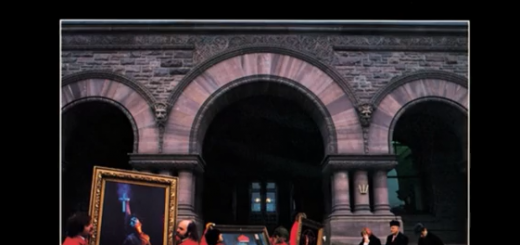“Seven Cities Of Gold” by Rush
To put this song into its proper historical context, the Seven Cities of Gold were mythical locations which were said to exist in the area modernly referred to as New Mexico. And as their moniker implies, legend had it that said localities were rich in the valuable mineral.
Now keep in mind, as you probably have already deduced, that this was back during the 16th century, i.e. the age of European exploration into the New World. So people were feening – crossing the ocean even – to get a chance to make it one of these cities, i.e. plunder it. And it is upon such an overall concept that this song is based.
Now the album this track is derived from is a conceptual one, which is said to be centered on “a young man’s quest to follow his dreams”. Based on the full explanation of the concept, that would mean that said individual is the narrator of this song.
Also the “Seven Cities of Gold”, as presented therein, wouldn’t be literal. Rather they are symbolic of his search for wealth, i.e. material fulfillment in life or the pursuit of destiny concurrently inspired by shall we say the lust for riches.
But that said, the reality of the area in which the cities are supposed to be situated proves to be a far cry from the fantasy. For as manifested, this aspiration has actually led to him venturing into a hostile, destitute land with no backup and no clear destination at hand. In fact as he sees the situation now, he may even perish on this quest. Yet he continues to venture on.
Lesson of the Story
And no, the moral of the story does not appear to be an espousement of perseverance or anything like that. Rather it would be more like ‘don’t go chasing waterfalls’. In other words, it seems pretty obvious that this young man made a mistake hastily chasing a dream, even putting his life on the line for it. But at the same time, it reads as if he’s in too deep to back out now.


Quick Facts about “Seven Cities of Gold”
The late Neil Peart, a Canadian musician, songwriter and author owns the writing credits to the song. He is best remembered as Rush’s primary lyricist and drummer.
Nick Raskulinecz (who is a noted American record producer) produced this song for Rush.
The album, which included the song was recorded in two (2) phases and released on June 12 2012 from the album “Clockwork Angels”. “Seven Cities of Gold” was not released as a single.
The album produced songs that typically belonged to the following genres:
- Progressive Rock
- Hard Rock

THE SPANISH SEARCH FOR THE FABLED SEVEN CITIES OF GOLD IN THE SOUTHWESTERN US
The Seven Cities of Gold, otherwise known as the Seven Cities of Cibola is a popular 16th-century myth. This myth promoted the view that gold-rich cities could be found within the pueblos of the now New Mexico Territory.
The search for the cities began in the 16th century. This was when the Spaniards heard rumors that Cibola, had been located a hundred miles northward across the desert. Most of the tales were shared by the shipwrecked survivors of the Narvaez expedition.
According to them, they had heard the legends from natives about cities that were filled with great riches. Italian Franciscan priest, Marco da Nizza cemented the legend in 1539 by telling Spanish colonial officials that he had seen the beautiful city of Cibola.
A team of Spanish explorers led by Francisco Vazquez de Coronado embarked on an expensive expedition to Cibola from 1540 to 1541, only to realize that all the rumors were unfounded. There were no treasures and definitely no gold cities.
The explorers, disappointed at the discovery returned to Mexico City. Due to the expensive nature of the trips, most of them were in debt and a majority of them failed to recover financially.








